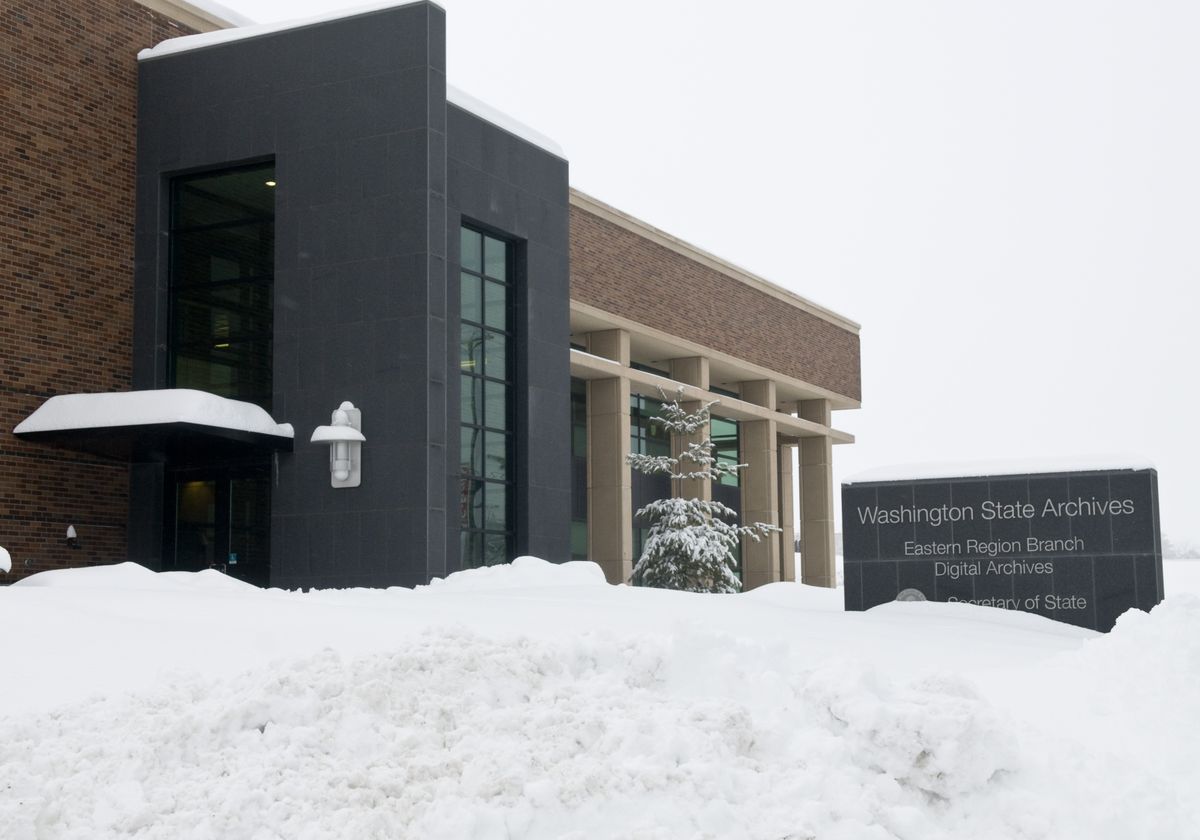Facility in Cheney serves as archive for digital data

In the middle of the 19th century, Washington was a territory with courts that heard criminal cases, civil cases and probate cases. There were deeds to lands and there was a form of government even though the area wasn’t officially a state until 1889.
Officials kept the records of everything, much like today. The documents are still around, but the way the state makes them available to the public is quite different than anything the early pioneers of Washington could have ever imagined.
“Our revered forefathers knew that access to records was an important part of democracy,” said Jerry Handfield, Washington state archivist. He added that making the archives accessible to the public was something included in the Constitution to provide Americans trust in their government.
Located across the street from Eastern Washington University in a building named for Anna Belle Culp Reeves, Washington’s first female Secretary of State, the Washington State Digital Archives, 960 Washington St., is becoming a model for other states and even other countries.
“Every year (we get) international visitors to see what this is like,” Handfield said.
The state-of-the-art facility in Cheney has seen visitors from China, Australia, Singapore, the United Kingdom and Canada, to name a few. Many of the groups are from agencies that would like to learn how Washington has been pioneering the way records are kept.
One of the ways the archives is leading the way in public records is from a Library of Congress grant. The grant was $925,000 to store records for 10 states including Idaho, Montana, Oregon, Alaska, Colorado, Louisiana, Indiana, North Carolina and Nevada. Computer-users looking for records on their state’s Web site will connect to the servers in Cheney, even though it looks like they are still on their home state’s site.
“Other states have asked to become part of the project,” Handfield said. The grant will end in December.
Washington state’s site has 10.25 terabytes of data on its servers – more than 79 million records. This includes birth records, city ordinances, death certificates, marriage licenses, corporate records, frontier justice records and so much more.
“We don’t have everything by all means,” said Kerry Barbour, the digital archivist in Cheney.
Since October, The Washington State Digital Archives has made audio from legislative sessions available on its Web site, thanks to a partnership with Microsoft.
Over the years, legislative sessions have been recorded for posterity, but the tapes can start to degrade over time. The tapes were transferred to a digital format and posted to the site. Anyone interested can look up keywords such as “water” and discussions on the legislative floor that covered “water” with a recording will be available as well as transcriptions in written form.
The site lists phrases that are said on the recordings with the keyword someone is searching for, and users can click on the phrase to hear it. This way, anyone looking up a recording of a legislative session won’t have to sit through hours and hours of audio before they get to what they need to hear.
“This will tend to grow as we get more and more recordings from Olympia,” said Todd Henderson, a data ingestion coordinator.
Henderson said he has posted recordings older than 1972 on the site. Some of them are in good condition, but some of the recordings haven’t aged so well and could be hard to hear.
Transferring the recordings to the site has been going on since 2005 and they have been available since Oct. 30, 2008.
Inside the digital archives building, visitors can see a museum of old computers that are all in working condition. There is also a classroom for Eastern Washington University students to use or other groups. Barbour said the Washington State Patrol has had training sessions in the classroom which includes a big screen television.
There is also a testing room that employees of the archives use to test the software they have written before it goes live on the Web site.
A small percentage of information stored by the archives is not accessible to the public. Social security numbers, addresses and other items with personal information about the state’s residents are not available. Copies of birth certificates are available, but they are not official.
June Timmons, chief applications architect at the facility, said that many cities in Washington are also starting to send in their ordinances – if they have them in electronic form.
“The locals just do it for the benefit if their system crashes,” Timmons said.